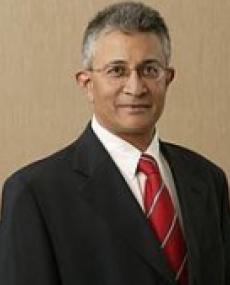
It was, however, only at university that Moosa got involved in politics. He attended the University of Durban-Westville, where he obtained his BSc degree in 1978. In 1976 he joined the Black Consciousness Movement (BCM) later becoming branch secretary for Durban-Westville, and in 1977 was an executive member of the South African Students Organisation (SASO) when it was banned. Moosa felt that it was during this period that he learnt about debate and constructive criticism. He soon perceived a need for the struggle to be broader than Black Consciousness allowed. He saw the benefits of working with people from all races. He played an important role in protests around the formation of the South African Indian Council (SAIC), and in 1983 was one of the founding members of the Transvaal Indian Congress (TIC). Moosa served on the executive committee of the congress. In 1983, with the launching of the United Democratic Front (UDF), Moosa recognised a group with the same view of a broader movement. He was elected as general secretary for the Transvaal region and a member of the National Executive Committee.
In 1985, after the arrest of Popo Molefe, Moosa became acting National General Secretary. Moosa faced detention many times during his life. The first was in 1980 when he was detained in connection with education boycotts. In 1988 he was incarcerated for another fourteen months, but was then able to escape with Murphy Morobe and Vusi Khanyile. In 1989 Moosa was again detained, and then placed under house arrest. During the period of the State of Emergency Moosa managed to escape detention by working from underground and staying on the run. With the dissolution of the UDF in 1991, Moosa was elected to the NEC of the African National Congress (ANC), and was given the portfolio of negotiation. He represented the ANC on a CODESA working group, focusing on constitutional principles and formulation. Following this, he was made Deputy Minister of Constitutional and Provincial Affairs, and was promoted to Minister when Roelf Meyer resigned. He remained in this position until 1999, when his portfolio was changed to that of Minister of Environmental Affairs and Tourism.